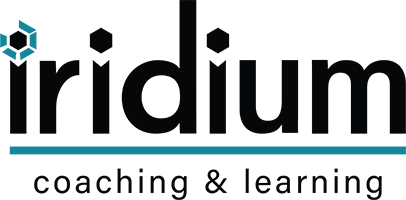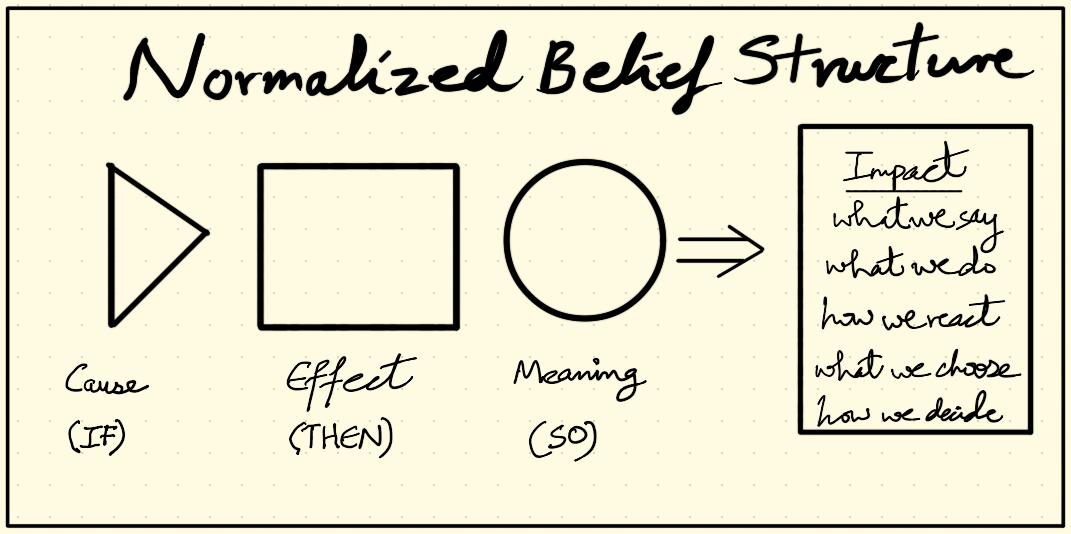The structure of beliefs!
In our monthly practice group called “Deepening the Roots“, we examined beliefs, more importantly, how they are structured.
Beliefs are what we tell ourselves internally, in a way that these become a mantra. Often, these beliefs serve us well. They drive us, they motivate us, they get us going and even keep us away from trouble or harm. In NLP, we call these enabling or resourceful beliefs. These sound like “I can do this“, “I am my favorite“, “I got this“, “One step at a time” and so on.
There are, however, unresourceful beliefs too. These are things we tell ourselves, that have a limiting effect on us. These beliefs restrict our world view and inhibit our ability to think freely and take action. They color our perception in a way that we do not see more choices that might be available to us. And operating from limited or no choice can leave us with a feeling of being stuck. (Examples: “I am no good“, “I am not equal to others“, “I am not intelligent“, “I cannot network“, “I suck at networking“, “I am just a housewife“)
Neuro Linguistic Programming is a discipline in modelling human behavior. The usefulness of having models (or structures) is that they can help us objectively look at our experience without any filter, thereby allowing us access to altering the structure and hence, how we experience a situation!
During the monthly practice group, the participants brought different beliefs such as:
- Others do not understand what I communicate.
- Water is dangerous.
- I am dumb.
- I don’t understand.
- Karma is a bitch!
What we call as beliefs can be examined (and later dismantled) by applying what is known as the Normalized Belief Structure (now onwards referred to as “NBS”) which comprises of: a cause, an effect and a meaning.
When the beliefs listed above are examined through the lens of the NBS, we noticed that what we call “beliefs” are actually meanings or conclusions that we created based on something that happened – in NLP, we call these distortions.
So, what we think is alive for us as a belief, is actually the meaning that we carry over repeatedly, almost like a movie that plays in our head on a recurring basis. This meaning generation gives us a lens to look at life in a limited way, and influences or impacts the way we take decisions, talk to friends/colleagues and in general, respond to different situations.
Here are some examples:
- Rain gets me soaked. I don’t like being soaked and wet. I must not go out in the rain.
- If you study, you will get a good job. You must study harder.
These are simple examples that we come across every day where “cause > effect > meaning” is at play.
Look at this example:
- I was in school talking to my friends. Teacher asked me to stand up and gave me a punishment to stand with my hands above my head.
- I felt embarrassed. I don’t even know what my mistake was. No one told me.
- In that moment, I decided that I am never going to give anyone a chance to punish me. I won’t make mistakes.
The event where the child was punished was the “cause”. The “effect” was the embarrassment and not knowing what had happened. And the “meaning” or the conclusion I made was “I won’t make mistakes”.
Another example:
- I was at the swimming pool and saw something bad happen to a friend.
- I got scared that it could have happened to me.
- I will stay away from water. It is dangerous.
Do you notice the “cause > effect > meaning“?
Delving into the cause and effect will bring up those old memories and feelings, so we carry forward with the meaning, and the meaning lives with us as beliefs.
The work we did in our session was to get all participants to distinguish the “cause”, which happened some time back. We used some reframing methods to help the participants notice that the “meaning” was what that young person or child made, out of a reaction to that situation, and to protect themselves from ever experiencing that situation again.
The reframed statements were (underlined, italicized):
- Others do not understand what I communicate – When I express myself, I feel so light!
- Water is dangerous – Water can be fun!
- I am dumb – I am different and it’s okay to be that way!
- I don’t understand – I am okay with who I am, and who I am not.
- Karma is a bitch! – If I make a mistake, I will figure out something else!
To summarize, the beliefs we think we create aren’t true (or false)! They are just what our imagination helps us create as a coping mechanism in the moment. An athlete that narrowly loses out on gold, might go either way depending on what meaning (and hence belief) they create at that time. The meaning, “I am not good enough at this level“, will push the athlete into doubt and they may not think of competing again. Whereas, the meaning, “If I was this close, I can easily win gold in 4 years“, will set that athlete on a path towards training hard to win a gold at the next Olympics.
If we are able to notice the impact of the meanings that we create and live with, we can then use the Normalized Belief Structure to break that old belief, and reframe to create a new one, that suits us now, or works for us.
Here is how you can use the NBS:
- Write down a belief that holds you back.
- Identify the meaning and separate it out.
- Go back to the first time something happened when you created that meaning. (This is where you identify the cause)
- Notice the “cause-effect” you experienced at that time, which led to creation of the meaning.
- If you think of someone else being in that situation instead of you, what could be alternate meanings that you might come up with, in that situation.
- Reframe that meaning, and check what it would mean for you today, if the limiting belief didn’t exist.
- What difference do you notice about that situation now?
The thing about beliefs is, they are only as good, as long as they serve us. The moment they don’t, we can create new ones that enable us.
Reframing and re-examining beliefs is not unique to therapy or coaching; it is pervasive enough in our everyday lives, and if we utilize NBS, then we don’t need to live in the impact of old meanings and beliefs! We can be free, have choice and freedom in how we operate in the world or respond to it!
If you managed to work through a belief and reframe its meaning, and the impact on you, drop me a comment!

